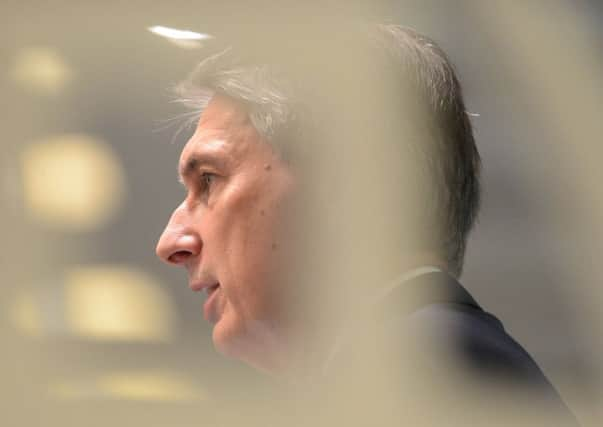Government borrowing in April highest for three years
This article contains affiliate links. We may earn a small commission on items purchased through this article, but that does not affect our editorial judgement.


The Office for National Statistics (ONS) said public sector net borrowing, excluding state-owned banks, rose by £1.2bn last month to reach the highest amount borrowed for the month since 2014. It came in higher than economists’ expectations of £8.8bn.
• READ MORE: General election news
Martin Beck, senior economic adviser for think tank EY Item Club, said the new fiscal year has “began on a disappointing note for the public finances. The culprit for April’s weakness partly lay with tax receipts. Total central government revenues rose by 3.9 per cent compared to 6.2 per cent in March, the slowest rate of increase in 12 months. Meanwhile, income tax receipts were up by only 1.4 per cent.”
Advertisement
Hide AdAdvertisement
Hide AdHowever, the statistics agency gave the government a boost ahead of the election on 8 June by revising down last year’s deficit.
It said government borrowing, excluding banks, for the last financial year dropped by £23.4bn to £48.7bn,from the previous year. It was the lowest annual borrowing figure since March 2008 and below the Office for Budget Responsibility’s (OBR) prediction of £51.7bn.
The government will face a stiff challenge to balance the books in the coming months as economists expect rising inflation to eat into consumer spending, causing the UK economy to slow.
Samuel Tombs, chief UK economist at Pantheon Macroeconomics, said April’s borrowing figures suggest the drop in gross domestic product (GDP) to 0.3 per cent growth in the first quarter “won’t be just a blip”.
He said: “Admittedly, the OBR expects borrowing to rise this year to £58.3bn in 2017-18, from £51.7bn in 2016-17 and it anticipates tax receipts rising only by 3.7 per cent. But this forecast reflects the fact that the surge in self-assessment tax receipts in January and February 2017 will not be repeated this fiscal year.
“Tax receipts growth, therefore, would have to significantly exceed the OBR’s full-year forecast in the first few months of this fiscal year in order to suggest that the fiscal consolidation is on track.”
Advertisement
Hide AdAdvertisement
Hide AdChancellor Philip Hammond had ditched his predecessor’s target of balancing the books by 2020, and vowed instead to put the public finances back in the black “as early as possible” in the next parliament as part of a new Charter for Budget Responsibility.